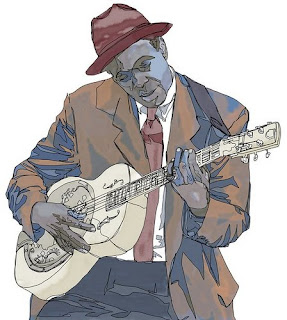
Single Carrot Theatre stretches itself once again to present Gao Xingjian's the other shore. Winner of the Nobel Prize for Literature in 2000, Gao has constructed an elusive play which was not elusive enough for Chinese Communist authorities, who banned its performance on the mainland. In 1995 Gao personally directed the premiere of the play in Hong Kong.
Composed of enigmatic scenes, the play features The Man (a sort of Chinese everyman) and a lythe ensemble of actors who cross a mysterious river (death? the frontier of a totalitarian state?) to undergo various tests of suffering. Writhing, singing, dancing, shouting in choral unison, the pilgrimage of the Man and his tribe endures the pain of learning language, of remembering the lost beloved, and of facing the fear of death. What may have angered the Communist authorities is that the troupe repeatedly faces the suffering of ostracism. Characters are killed for their nonconformity, scapegoated for imagined betrayals, and coerced into confessing as true what they know to be false. A scene set in a temple, replete with chant, incantations, candles, and incense, suggests that in the mystery of the Buddha these various sufferings might (or might not) find their ultimate redemption.
Expertly directed by J. Buck Jabaily, the ensemble brilliantly moves from Greek chorus to ballet corps to enraged mob through the play's undulating action. Nathan Fulton's candle-lit black and white design deepens the production's atmosphere of adoration and troubled dream. Dennis Elkins exudes the bewilderment and courage of the lonely Man who barely manages to keep his integrity amidst the pressures to social conformity and annihilation.
Influenced by disparate theatrical sources (Beckett, Grotowski, as well as traditional Chinese theatre), Gao offers a mysterious neo-Buddhist tale of the effort to maintain some individual freedom against the biological forces of death and the political forces of conformism. This is not Cartesian theater for those who savor the clear, distinct, and obvious. Presented by Single Carrot's energetic ensemble, the other shore offers up visual and audial dream images of what we find painful and elusive in the human effort to jump over what constrains.
Composed of enigmatic scenes, the play features The Man (a sort of Chinese everyman) and a lythe ensemble of actors who cross a mysterious river (death? the frontier of a totalitarian state?) to undergo various tests of suffering. Writhing, singing, dancing, shouting in choral unison, the pilgrimage of the Man and his tribe endures the pain of learning language, of remembering the lost beloved, and of facing the fear of death. What may have angered the Communist authorities is that the troupe repeatedly faces the suffering of ostracism. Characters are killed for their nonconformity, scapegoated for imagined betrayals, and coerced into confessing as true what they know to be false. A scene set in a temple, replete with chant, incantations, candles, and incense, suggests that in the mystery of the Buddha these various sufferings might (or might not) find their ultimate redemption.
Expertly directed by J. Buck Jabaily, the ensemble brilliantly moves from Greek chorus to ballet corps to enraged mob through the play's undulating action. Nathan Fulton's candle-lit black and white design deepens the production's atmosphere of adoration and troubled dream. Dennis Elkins exudes the bewilderment and courage of the lonely Man who barely manages to keep his integrity amidst the pressures to social conformity and annihilation.
Influenced by disparate theatrical sources (Beckett, Grotowski, as well as traditional Chinese theatre), Gao offers a mysterious neo-Buddhist tale of the effort to maintain some individual freedom against the biological forces of death and the political forces of conformism. This is not Cartesian theater for those who savor the clear, distinct, and obvious. Presented by Single Carrot's energetic ensemble, the other shore offers up visual and audial dream images of what we find painful and elusive in the human effort to jump over what constrains.

















